
Setting up your Facebook ad campaign budget is a crucial step in ensuring that your ads are both effective and cost-efficient. The budget determines how much you’re willing to spend on a daily or total basis and influences the reach and results of your campaign. You need to decide between a daily budget, which limits how much you spend each day, or a lifetime budget, which allocates funds over the entire duration of the campaign.
Properly setting up your budget with the help of a digital marketing training for facebook ads ensures that your ads reach the right audience without overspending, helping you maximize return on investment (ROI).
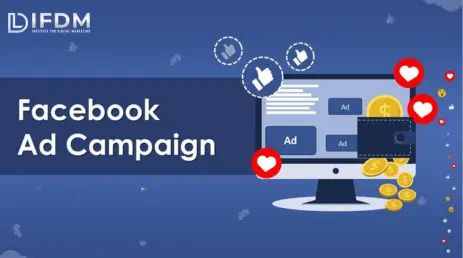
A campaign in Facebook Ads Manager is the top level of an ad structure, where advertisers define the overarching goal of their advertising efforts. Each campaign focuses on a specific objective, such as brand awareness, traffic, engagement, lead generation, or conversions.
Within a campaign, advertisers can set up multiple ad sets and ads to target different audiences, placements, and strategies. Campaigns allow advertisers to track performance based on the chosen goal, providing key insights and control over budget, audience targeting, and creative content. Campaign objectives guide how ads are optimized and delivered to reach the desired outcomes efficiently.
When setting up your Facebook ad campaign budget, it’s essential to align your spending with your overall marketing goals. Facebook offers flexible options that allow you to control costs based on campaign objectives. You can start with a small budget, monitor ad performance, and scale up as needed. Additionally, Facebook’s budget optimization tools, like cost caps and bid strategies, help ensure you’re not overpaying for results. By regularly analyzing campaign metrics such as cost-per-click (CPC) and cost-per-conversion, you can fine-tune your budget allocation for better efficiency and impact over time.
Facebook Ads Manager is a powerful tool provided by Facebook to help businesses create, manage, and track their advertising campaigns across Facebook, Instagram, Messenger, and the Audience Network.
With fb Ads Manager, you can run multiple campaigns simultaneously, adjust settings in real-time, and monitor important metrics like clicks, impressions, conversions, and costs.
It also supports A/B testing, allowing you to compare different versions of your fb ads to see what works best. Overall, Ads Manager simplifies the process of launching and refining ad campaigns for better results. It is also important to learn how SEO and SMM impact Digital marketing.
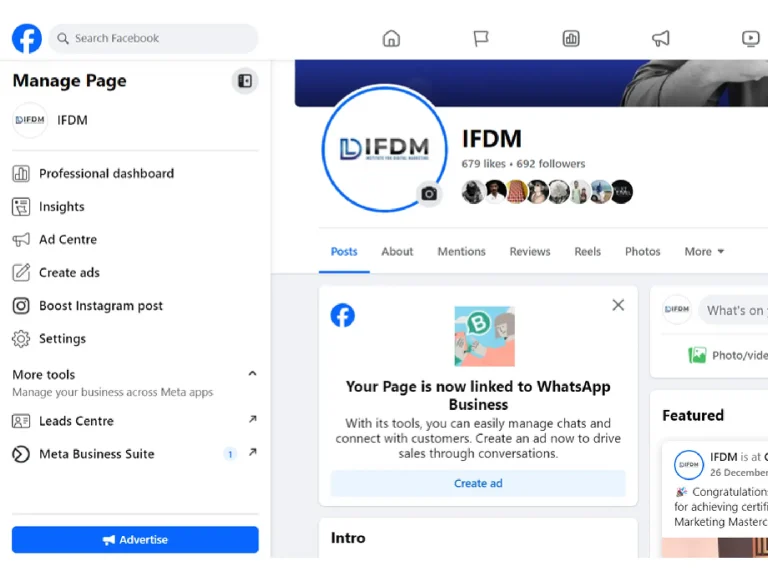
Advertising on Facebook offers numerous advantages for businesses of all sizes. With over 2 billion active users, Facebook provides an extensive reach to a diverse audience worldwide. The platform’s advanced targeting options allow you to connect with specific demographics, interests, and behaviors, ensuring your ads reach the right people.
Additionally, Facebook advertising is cost-effective, enabling businesses to set budgets that fit their financial capabilities and start small before scaling up based on performance. Engagement potential is high, as the platform encourages interaction through likes, comments, and shares. Furthermore, robust analytics through Facebook Ads Manager help you track performance and make data-driven decisions.
Finally, mobile ad optimization makes it a powerful tool for reaching audiences on the go, making Facebook a vital component of any digital marketing strategy.

Running Facebook ads involves several steps, from setting up a campaign to targeting the right audience and designing effective creatives.
By following these steps, you can successfully run Facebook ads that target the right audience and drive the desired results for your business.
Follow these steps to set up a Facebook ad campaign budget,
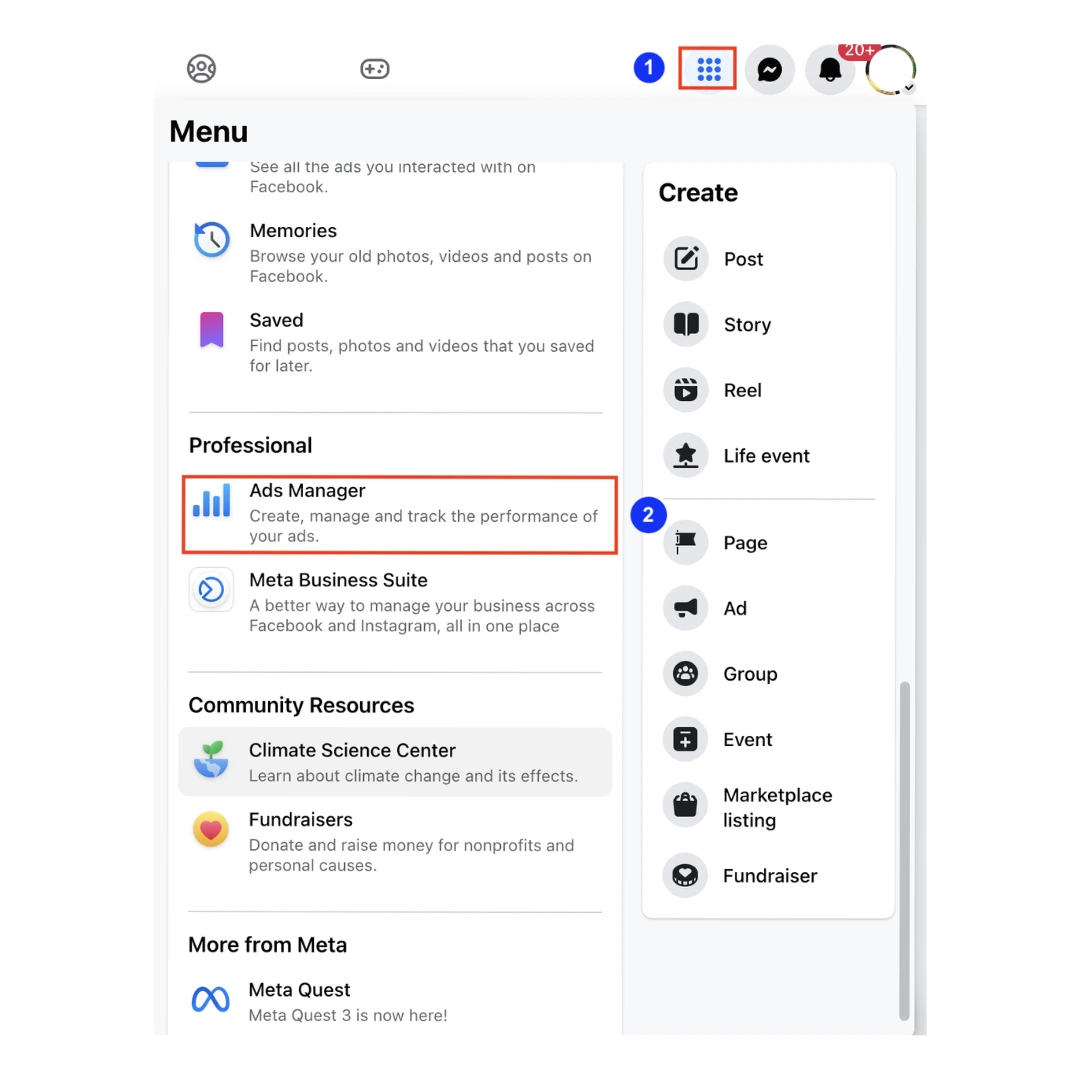
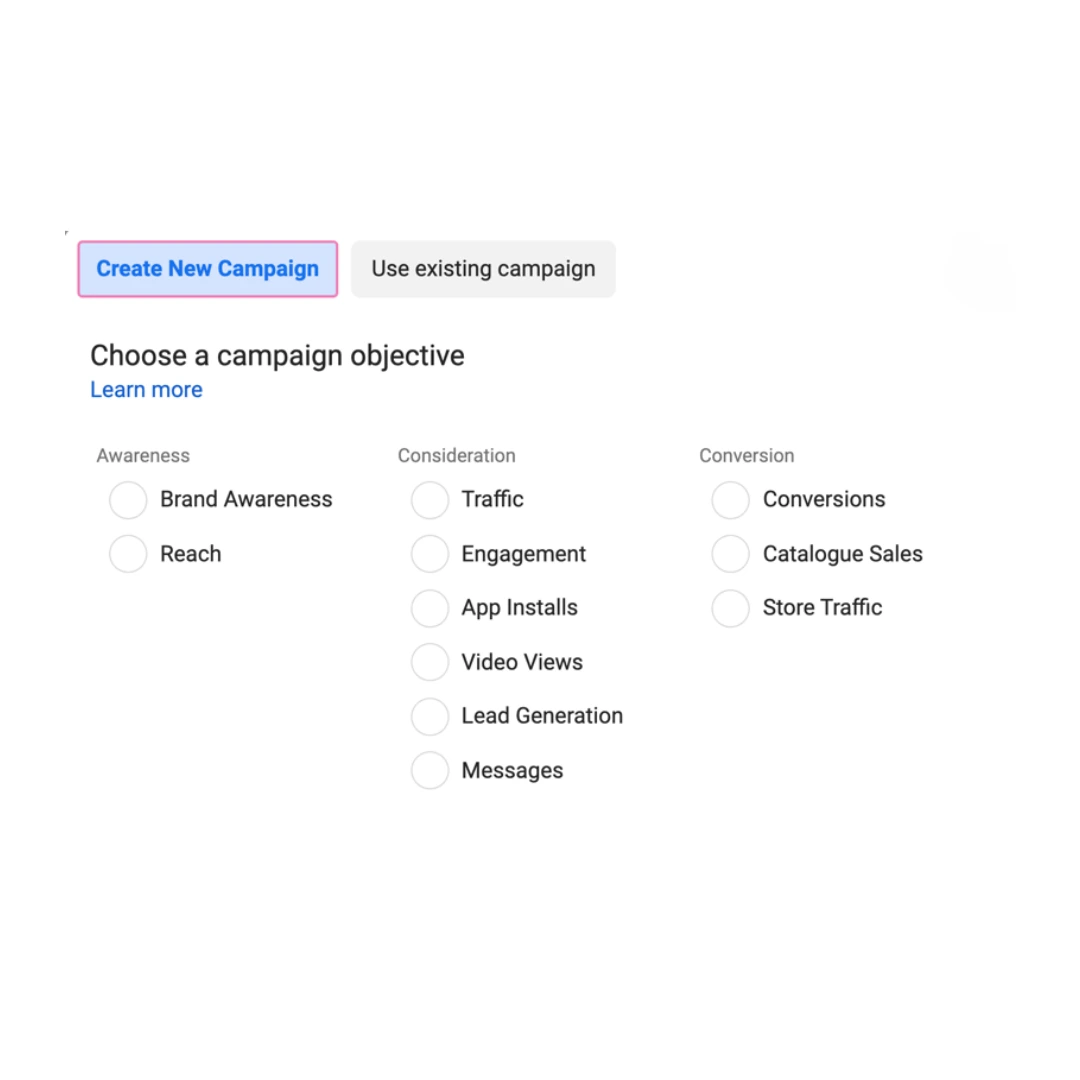
Select an objective that aligns with your advertising goals. Facebook offers various objectives like:
1. Under the Campaign Level, toggle “Campaign Budget Optimization” (CBO) if you want Facebook to automatically allocate your budget across all ad sets for optimal performance.
2. Choose between Daily Budget or Lifetime Budget
You can also choose Ad Scheduling (available with lifetime budgets) to run ads only at specific times of the day or week.
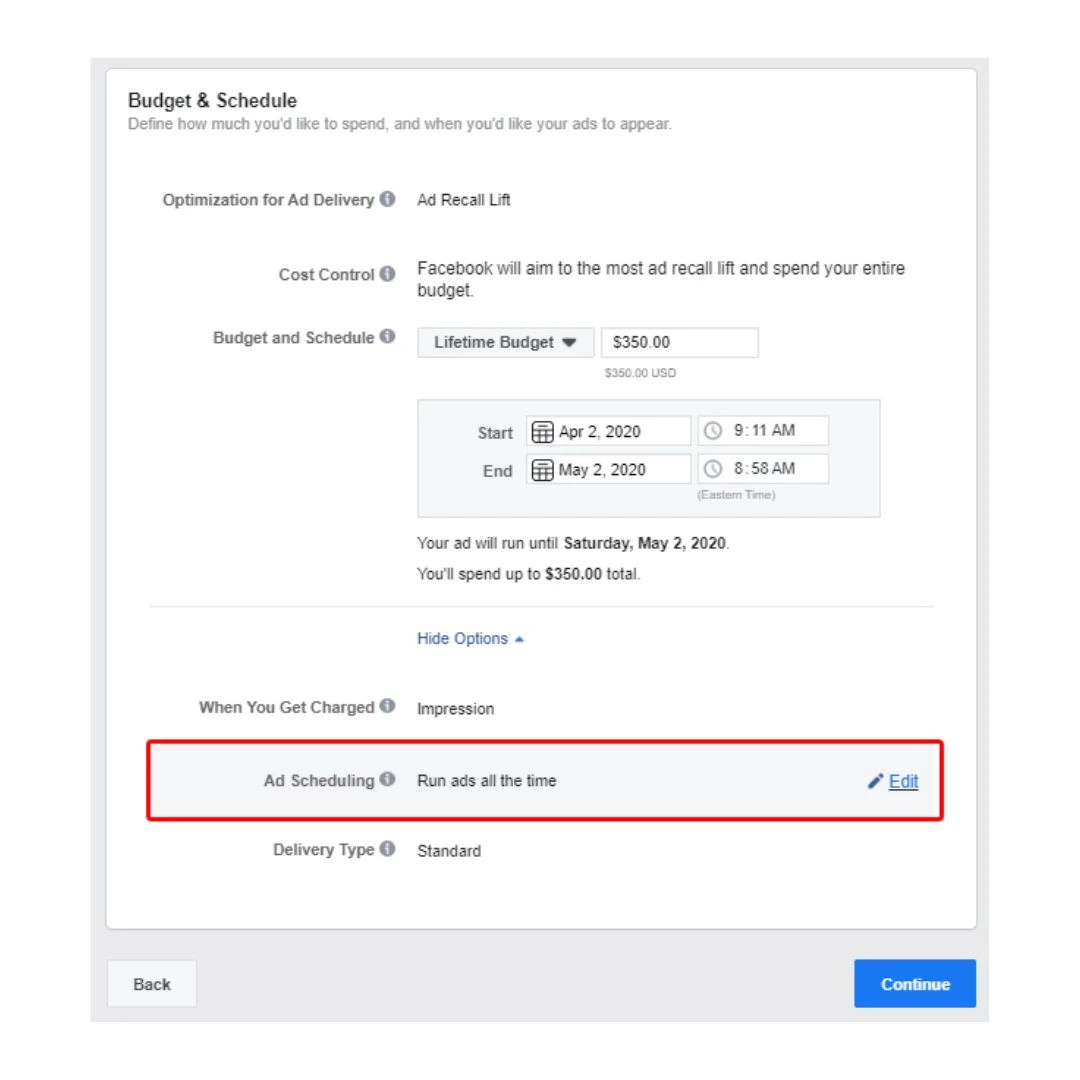
Once you’ve set the budget and schedule, review the details to make sure they align with your campaign goals.
After reviewing all your information, click “Publish” to launch your facebook ad campaign with the set budget.
Setting up your Facebook ad campaign budget effectively is key to achieving your marketing goals. By understanding budget types, determining realistic amounts, choosing appropriate bid strategies, and continuously monitoring performance, you can effectively manage your ad spend and drive impactful results for your business.
Ultimately, a well-planned Facebook ad campaign budget empowers you to make informed decisions, adapt to changing market conditions, and achieve your marketing goals more efficiently. As you refine your approach, you’ll not only improve your ad performance but also enhance your overall marketing strategy. Embrace the power of data-driven insights and proactive budget management to make the most of your Facebook advertising efforts, driving meaningful engagement and conversions for your business.
Facebook will cost on your selected strategy: Cost-Per-Click (CPC), Cost-Per-Mille (CPM) or Cost-Per-Action (CPA). You are only charged when the ad makes a result-clicks, views, or conversions based on the objective you set for your campaign.
Yes, you can change your daily or lifetime budget anytime for the campaign. However, large changes can disrupt the ad delivery algorithm, potentially affecting performance.
Campaign goal, reach, bid strategy and campaign duration are some of the considerations that should be taken into concern. Test smaller budgets first to refine your strategy before scaling.
The minimum daily budget depends on the type of ad and the type of the bidding strategy. For campaigns with a link clicks or conversion objective, the minimum budget is typically around Rs.400 per day. For impression-based campaigns, it can start as low as Rs.80 per day.
Facebook Ads Budgeting involves setting a daily or lifetime budget for your ad campaigns. The platform uses this budget to bid for ad placements in auctions, aiming to optimize for the best possible results based on your campaign goals, such as clicks, conversions, or impressions.
12/14B, Chakra Nivas, Harikrishna Naidu St, Venkatapuram, Ambattur, Chennai, Tamil Nadu 600053
©2023. IFDM . All Rights Reserved.